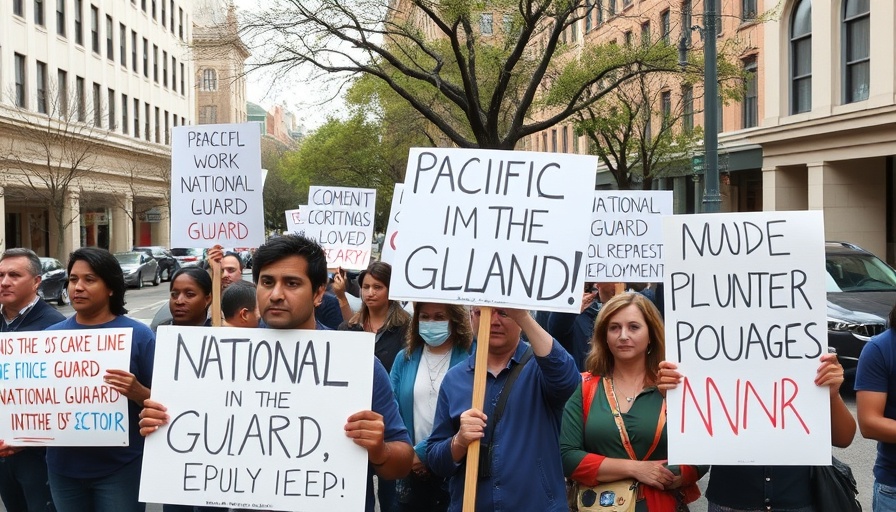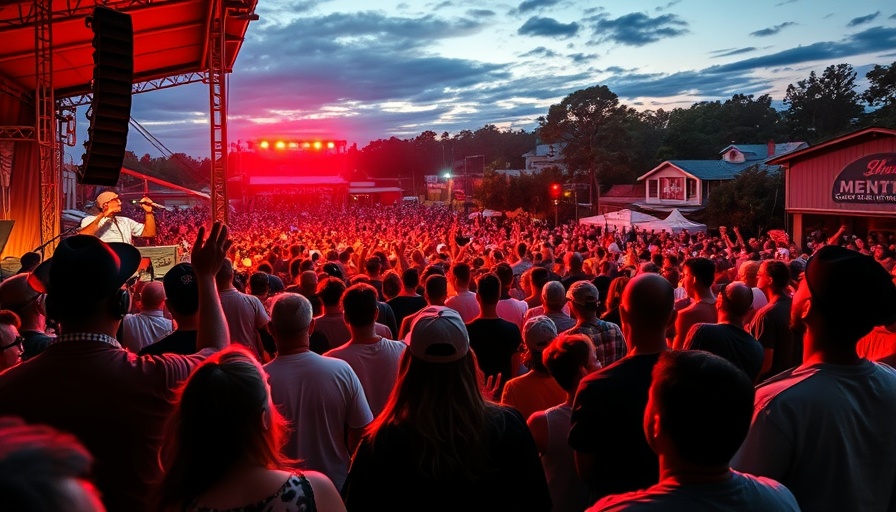
Protests Spark Debate Over National Guard's Role
On August 16, 2025, the streets of Washington, D.C. filled with thousands of demonstrators voicing their opposition to the recent deployment of the National Guard in response to civil unrest. This mobilization has raised tensions across the nation, prompting a mix of support and condemnation from various groups, including parents and community leaders.
Understanding the Concerns of Parents and Local Communities
Many parents are particularly concerned about the implications of deploying military forces in urban areas. They fear the potential for escalated violence, especially in neighborhoods that have previously experienced unrest. For families, this isn't just a national issue; it's personal. Parents are weighing the safety of their children against the backdrop of what they believe should be a community-driven response to conflict.
Voices from the Ground: Diverse Perspectives on Guard Deployment
The protestors represent a cross-section of society, from young students advocating for peace to local business owners expressing frustration over police presence disrupting their livelihoods. One organizer stated, "We don't need the National Guard; we need community reconciliation and support for local initiatives." This sentiment highlights a deeper need for dialogue within the community.
Future Predictions: What Lies Ahead for National Guard Deployment?
Looking to the future, experts believe that the outcome of these protests could influence similar actions nationwide. If communities succeed in pushing back against military presence, it may pave the way for policy reforms that favor local responses over federal interventions. Advocates argue for mental health support and community-led problem-solving approaches as alternatives to military force.
Counterarguments: Security vs. Civil Liberties
Supporters of the National Guard's deployment argue that their presence is necessary to maintain order and prevent further riots. They contend that local law enforcement is often overwhelmed and that military assistance should, in times of crisis, be seen as a safeguard for public safety. This argument, however, walks a fine line between ensuring security and infringing on civil liberties, as many are concerned that the heavy-handed approach stifles peaceful protests.
What Can Be Done? Call for Community Engagement
In light of these events, community leaders are emphasizing the power of grassroots movements. They encourage residents to engage in dialogue with local representatives and to advocate for policies that prioritize human rights and community safety over military intervention. It's crucial for citizens to join local town hall meetings or forums to discuss their concerns and push for action that reflects their values and needs.
The ongoing discussions surrounding the National Guard's deployment reveal a critical moment in American society. It's an opportunity for families, activists, and community leaders to come together in search of sustainable solutions that respect both safety and civil rights. As these protests continue, it's essential for residents to remain informed, engaged, and active in shaping their cities' futures.
**Join the conversation**: Participate in local discussions about community safety and military presence. Your voice matters in advocating for a balanced approach to public order!
 Add Row
Add Row  Add
Add 




Write A Comment